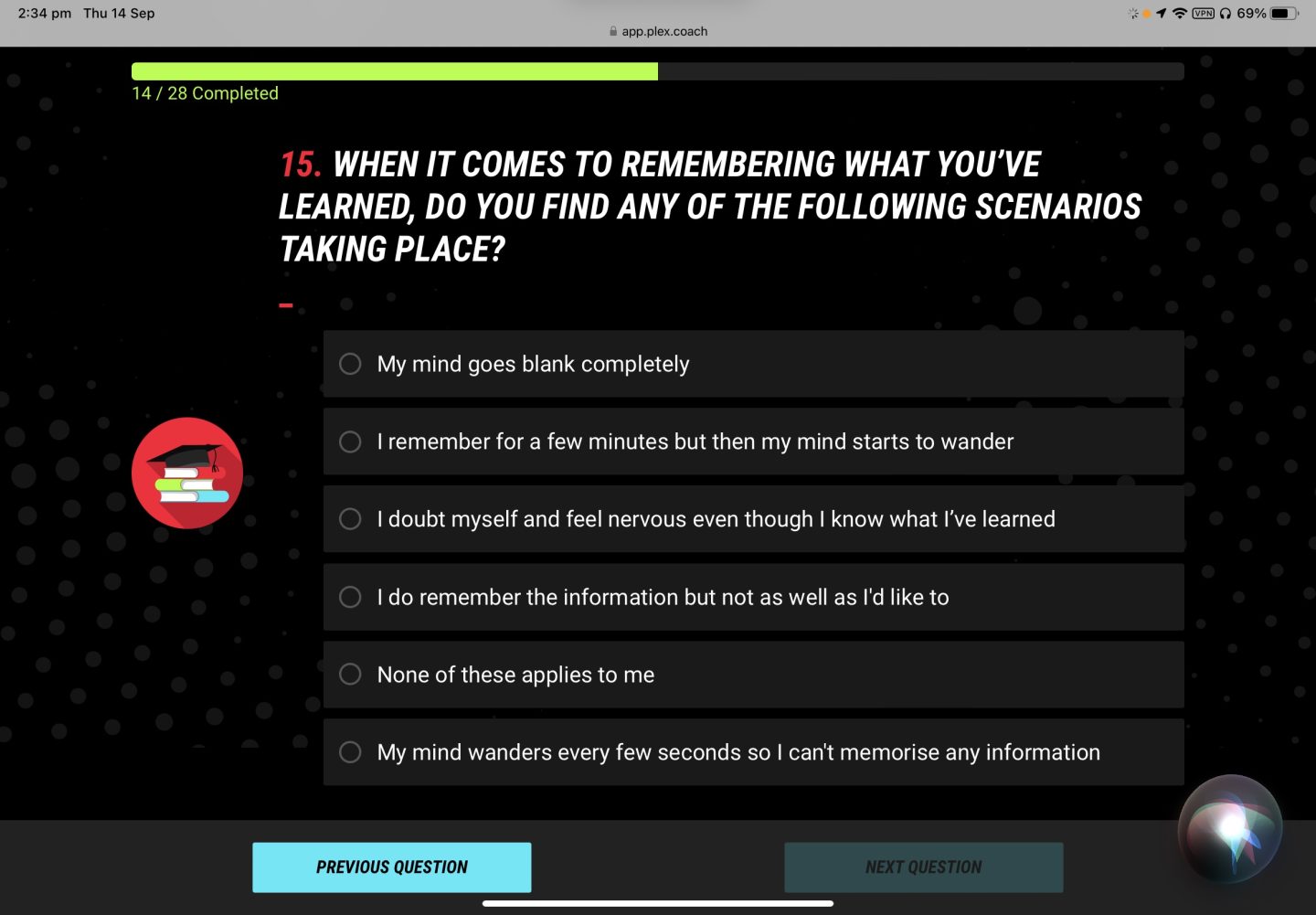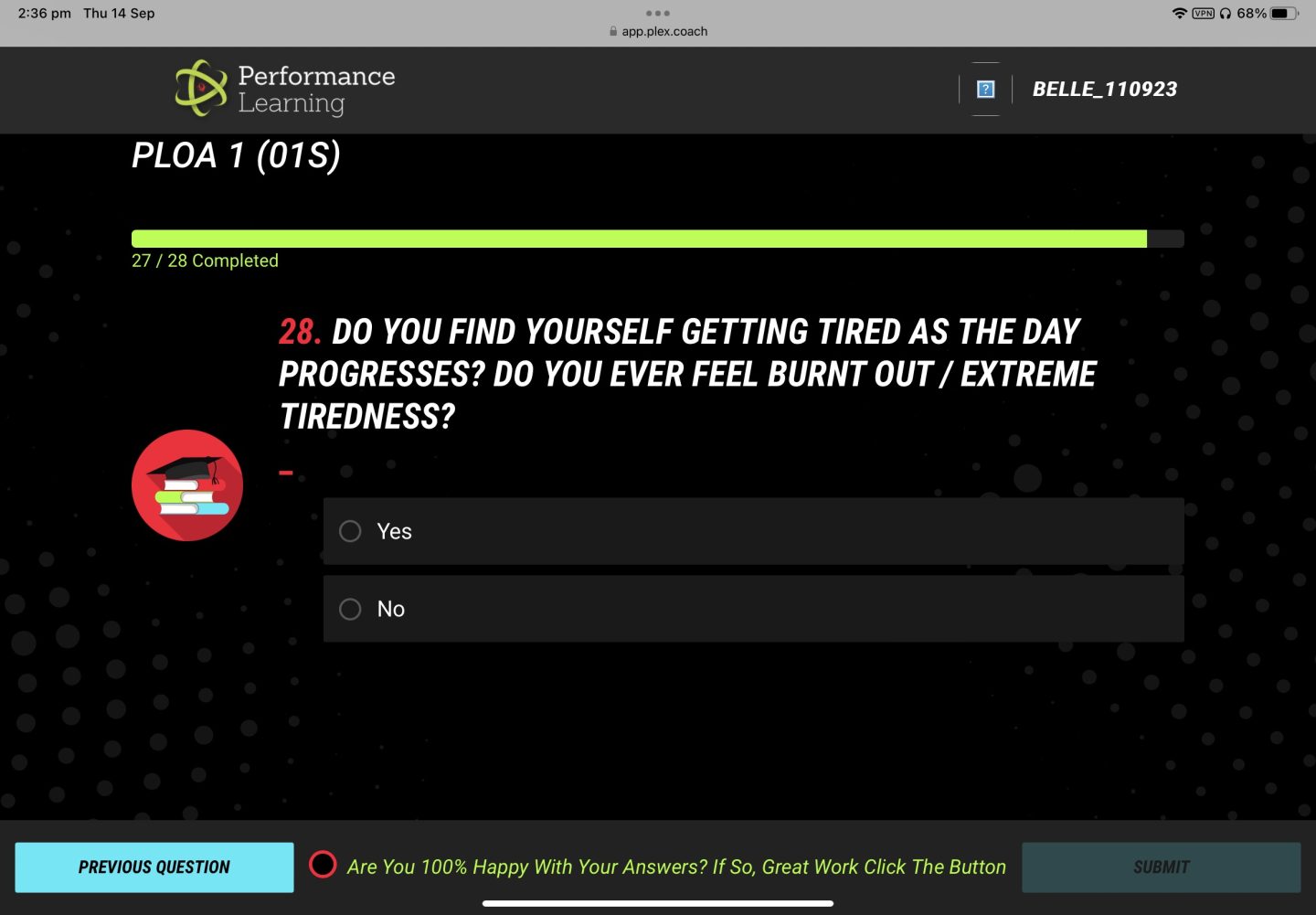Post in association with Performance Learning
Secondary school was not what you would call a FUN TIME for Belle.
In fact, it was distinctly UNFUN. She found the whole set-up extremely stressful and was not helped by the fact that the only effort the school made to support her with her anxiety was to give her a red card to wave in class if she felt anxious. (I’m not kidding, this was their actual strategy for dealing with anxiety.)
What the school never once flagged was the possibility that she might have any additional needs and so it was only through our own efforts – Belle pushing me initially and then me pushing anyone I could think of – that she finally was diagnosed with ASD, aged 17. By this point, she had dropped out of school and then college, managing to turn up for her GCSE exams and somehow pass them all despite the stress and despite not having done any work or revision of any kind in months.
(I say ‘somehow’ – she’s extremely bright, that’s how.)

Secondary school-aged Belle and me when I still had a defined jawline
I often look back at that time in her life and wonder how school might have been different if we’d been more aware of her needs and if she’d had more support in place. Could she have had a more positive experience if she’d been helped to understand her situation and to adapt her learning style to suit HER rather than the school’s expectations of her?
What is obvious to me from talking to friends with children is that a LOT of kids are struggling with school and with life in general. The school environment suits some people, sure, but the majority of children find some aspect of it challenging, and there aren’t the resources (or perhaps even the inclination?) to change how things are done to ensure that every child gets as much as they can out of their school experience. You can argue that the whole school system needs reforming, but there ARE things you can do to support your child and their learning style without taking them out of school completely.
Introducing Performance Learning
I spoke recently to Tej Samani, founder of Performance Learning, a coaching programme designed to help you understand how your child feels about their subjects, about school, about themselves and, most importantly, how these all fit together.
I want to say first up that having spoken to Tej twice, I GET IT. I understand what he is trying to do, what he has spent over 10 years developing, and I totally buy into the concept. This isn’t one of your basic tuition websites or some money spinner, this is a man who cares about children’s learning. In our second conversation, he MADE ME CRY. (Not intentionally. More on that later.) I say this because I want you to know that I believe in the power of Performance Learning to help your kids.
Tej didn’t have an easy time at school, and his passion for making education accessible is inspired by his own experiences. The idea behind Performance Learning is a seemingly simple, holistic approach that says that we cannot look at school alone, we have to look at our child’s skills, their behaviour and their well-being as one package. I say ‘seemingly simple’ because this can be difficult for schools to do without a better understanding of how children FEEL. Performance Learning considers factors like sleep deprivation, overwhelm and emotional triggers as well as their school experience.
Performance Learning is already being used by tens of thousands of children through Tej’s work directly with schools and teachers and now he wants more parents to be able to access the programme at home.
The Performance Learning assessment
The Performance Learning process starts with a 15-minute assessment, which kids complete in their own time by working through a series of questions that explore their attitude to learning, to school and to themselves. I asked Belle to complete the assessment putting herself back in her 14-year-old self, which I know was difficult for her as they are still such powerful and distressing memories, even seven years later.
Tej has developed this assessment, through years of research, to provide as much information about a child as possible within a relatively simple set of questions. Completing the assessment can be difficult, as it forces children to be honest with themselves, but Tej has spent a long time making it accessible and straightforward.
This is what the assessment looks like:


Looking at the results
Once your child has completed the assessment, you’ll be sent a report that highlights key areas for develop and assigns them a ‘score’ and an alert level – this isn’t a measure of achievement, simply a way for you as a parent to track their progress. Your child gets their own version of the report too.
I spoke to Tej about the report and it was genuinely moving how easily it felt like he had got to know Belle just through those few questions – he spoke about her with more insight than any of her teachers throughout the whole of her secondary school career. (He hasn’t spent all those years developing the tools for nothing). He highlighted how she clearly had the will to learn, to WANT to do well, but she just hadn’t known how.
He talked about how with just a few weeks of coaching, he felt he would have been able to give Belle some of the tools and structure she needed to make things easier and to feel more confident about school. I know she would have still struggled with many aspects of it and I know that there’s no way to prove now how much of a difference Performance Learning would have made, but I believed him.
He also said that it was clear that she had only done as well as she had because of my help. He said that he could see from her results that my acceptance of her and my support had been the thing that made the difference to her. He called me her ‘saving grace’. It was at this point that I cried, which was honestly a little embarrassing on what was meant to be a professional work call, but it hit me hard. I cried after the call telling Belle about it. I am welling up writing this.
What I’m trying to say is that I UNDERSTAND if you currently feel like you’re doing everything you can as a parent and still feel like you’re lost, or helpless or don’t know how to support your child through school. The fact that you are even worrying about it means you’re probably already doing your best, but maybe Performance Learning could help too.
How to use Performance Learning
Once your child has completed the assessment and you understand the results, you’re already in a stronger position to support them, because you’ll have an insight into where they’re currently struggling, their triggers and worries, and the actions that you can take as a family to improve their well-being and focus going forward.
You’ll then have access to the full Performance Learning programme, which includes:
- The initial Performance Learning Assessment – INSIGHT
- A priinted Performance Learning workbook that will be sent to your home
- Pre-programme onboarding session
- 5 x 2-hour long live virtual group coaching sessions delivered by Tej for your child and you
- 12-month access to online learning platform – SOAR
SOAR delivers bespoke learning pathways, based on your child’s assessments, designed to help children understand more about themselves and how they learn and to offer practical, actionable advice on everything from sleep to self-esteem. This is NOT about subject revision, this is about equipping children with the lifelong skills and resilience they need to get the most out of school, college and even life.
Performance Learning is already being used in hundreds of schools, but if you’re interested in finding out more about how it can help your family directly then a good first step would be to watch the FREE training video for parents, all about how to help improve your child’s engagement in the classroom.
I would honestly have loved to have been able to try Performance Learning with Belle and would be interested to hear how you get on and what difference it makes to you and your child.
